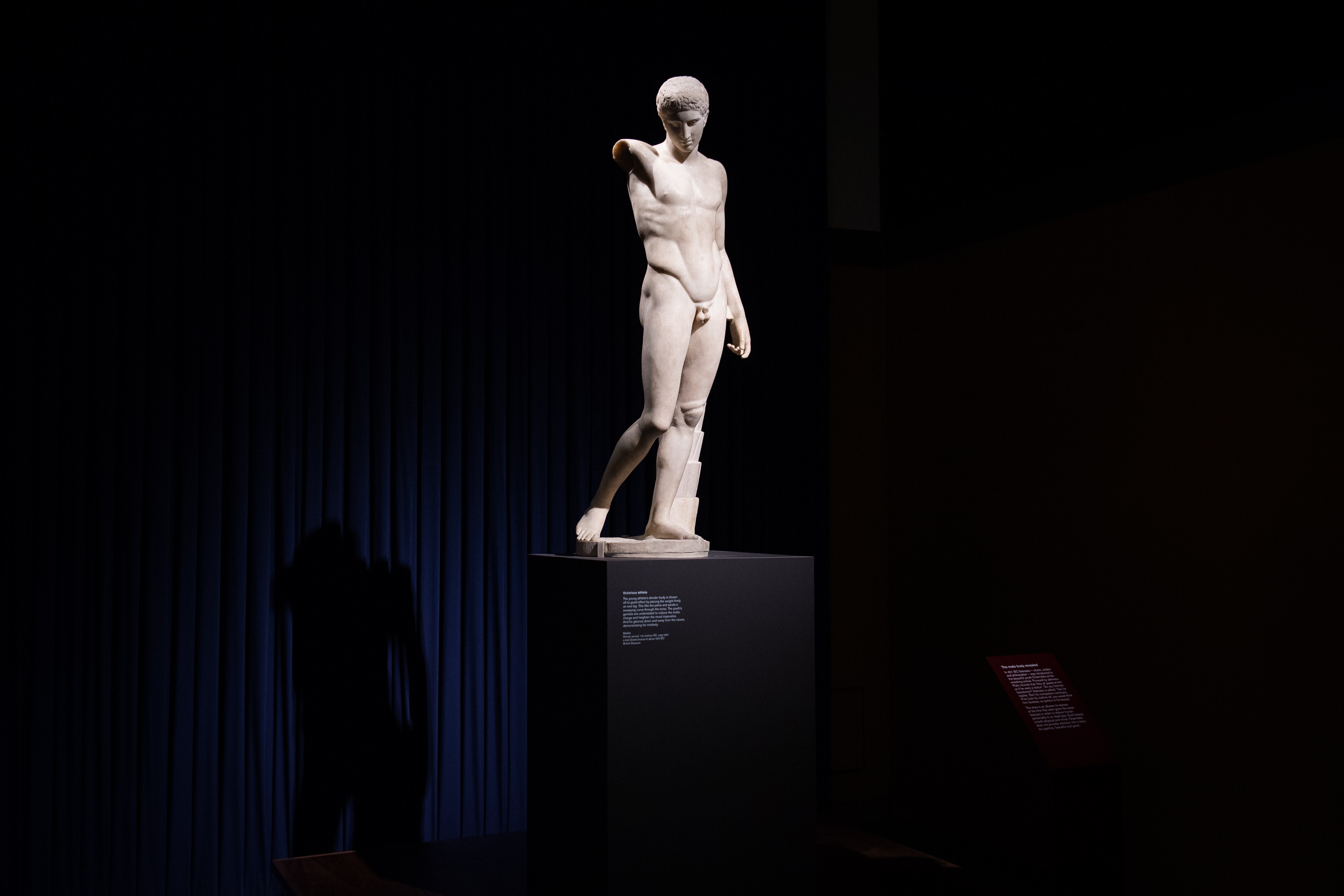Michael Phelps is joining the ranks of ancient Greek legends.
The U.S. star swimmer nabbed his 13th individual gold medal on Thursday-- after winning the 200-meter individual medley-- bringing his gold medal count to 22.
As if the athlete's accomplishments alone weren't already extraordinary, Phelps also managed to break an ancient Greek Olympian's record-- more than 2,000 years later.
Leonidas of Rhodes won 12 individual gold medals over four Olympics-- one less than the new record holder.
So, who is Leonidas of Rhodes?
According to the Olympic Games website, the Greek athlete was considered a hero for his unique achievements as an Olympic runner from 164 to 152 B.C. For four consecutive Olympics he won three races in the same day-- the stadium race, the diaulos race and the armour race.
The stadium race was a sprint of about 200 meters-- or a test of speed. The diaulos was twice the distance of the stadium race, while the armour race was exactly what it sounds like-- a race done in armour. Runners participating in the challenging race dressed in heavy battle gear. They often wore helmets and carried shields.
The armour race was different from all other ancient Olympic Games, which were done completely nude.
Leonidas likely had to run in the armour gear in temperatures of about 100 degrees. That's quite the contrast from the modern-day Olympic pools Phelps' is used to, where temperature and other factors are carefully monitored.
Although there's little biographical information about Leonidas, it's safe to say his name-- derived from the Greek word for lion-- fits him well.
The Olympic website states that in ancient Games, the winners weren't awarded with medals, but often went home only with a simple olive leaf crown. Athletes didn't make any money off their accomplishments but they did gain fame. Olympic champions were received as heroes in their towns or cities, and often went on to hold political positions. They also reaped the benefits of holding Olympic Games glory for the rest of their lives.
Although Leonidas' home of Rhodes had a strong athletic tradition, it wasn't a feat for the 'Baltimore Bullet'. It may be another 2,000 years until we see another athlete with the same 'speed of a god'.


